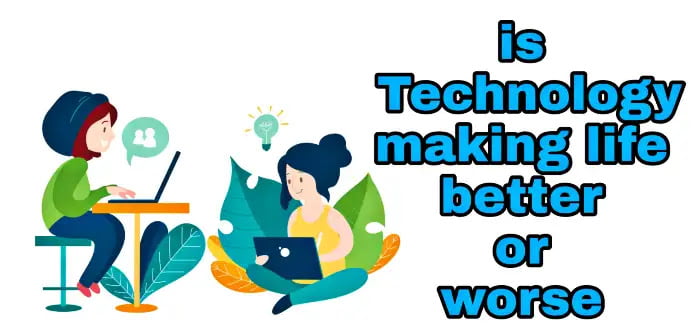Smartphones are a source of concern for everyone. “Have cellphones ruined a generation?” and “Smartphone addiction could be changing your brain” are just two examples of headlines that create a grim image of our smartphone addiction and its long-term implications. This isn’t a new complaint; at the time of the newspaper’s invention, public opinion was concerned that people would skip the stimulating joys of early-morning talk in favor of reading the newspaper. Is technology’s story truly that bad? There’s certainly reason to be concerned. Smartphone use has been linked to major problems like reduced attention spans, debilitating sadness, and even an increased risk of brain cancer. and The education sector in contemporary times cannot be visualized without the intervention of technologies.
But, in the end, the same worry surfaces: Smartphones can’t be beneficial for us because they’re displacing actual human connection from the good old days. Everyone has heard how today’s teenagers prefer to text rather than converse with one another in a room. But, might all that messaging be providing anything significant and real to those teenagers?
-
THE ART OF CONNECTION
A brief scan of the literature on technology-mediated interaction finds a mixed bag. According to several research, spending time online socializing can reduce loneliness, improve well-being, and assist socially nervous people in learning how to interact with others. Other research suggests that spending time online socializing can lead to loneliness, a reduction in well-being, and a crippling reliance on technology-mediated engagement to the point that users prefer it to face-to-face engagement.
-
THE FOUNDATION FOR INTERPERSONAL CONNECTION BEHAVIOURS
I can’t help but observe online interactions differently from other thinkers. People strengthen their bonds by proving that they understand one other’s needs and opinions, a cyclical process that brings them closer together. If I tell you my secrets and you respond well, I’m much more likely to tell you my secrets again—and you, in turn, are a lot more willing to give me your secrets. This means that every time two individuals converse, an opportunity for relationship improvement arises.
-
MOVING FORWARD
The interpersonal connection behaviors paradigm does not account for all of the factors that may have an impact on our well-being after spending time on social media. Other problems posed by the internet include the feeling of wasted time and emotional contagion from unfavorable news, to name a few. A focus on genuine social connection, on the other hand, can help explain decades of seemingly contradicting findings. Even if the methodology is contested in the future, the basic premise will almost certainly be upheld: we need to research the specifics of how individuals spend their time online if we want to comprehend the possible consequences.
- Sluggishness with the smartphone. Slump at your desk. Neck text Whatever you choose to call it, the way we hold ourselves when using phones, computers, and tablets is unhealthy. Poor posture can cause not just physical but also psychological problems, such as low self-esteem and mood, reduced assertiveness and productivity, and a greater inclination to recall unfavorable events.
- Overuse of digital devices might cause vision problems. Intense screen time can weary your eyes and create eye strain, resulting in headaches, problems concentrating, and watery, dry, itchy, burning, stinging, or fatigued eyes. Overuse can also result in distorted or double vision, as well as increased light sensitivity.
- Insomnia can be caused by excessive use of electronic gadgets before bedtime. Because of the short-wavelength, artificial blue light that digital devices create, your body’s natural clock and circadian rhythm are delayed, and melatonin, the sleep-inducing hormone, is suppressed.
- Using technology is addicting, and it’s becoming increasingly harder for people to disconnect from it. In fact, the average American adult spends more than 11 hours a day online.
- While we use systems for long periods of time, we frequently sit for long periods of time, whether at desks, on couches, or in bed. Sedentary behavior raises the risk of a variety of illnesses and diseases, including diabetes, cardiovascular disease, colon cancer, and obesity.
- Our mental health suffers from the influence of technology just as much as our physical health does. Young adults who used seven to eleven social media networks had a threefold increased risk of sadness and anxiety compared to those who used two or fewer sites.
- Relationships can be harmed by technology, especially when it changes how we communicate. One of the main concerns is that when speaking via text or email, misunderstandings are considerably more frequent. After all, nonverbal communication (which some believe accounts for up to 40% of our in-person interactions) is completely gone. Every electronic message you send, regardless of the circumstance, should be carefully worded.
- Young people’s ability to read body language and nuance in face-to-face interactions is another social skill that technology is eroding. We live in a culture where young people, armed with an iPhone and a laptop and devoting hours every evening from the age of 10 forward to messaging of various kinds, are increasingly unlikely to develop the silent fluency’ that comes from face-to-face engagement.









